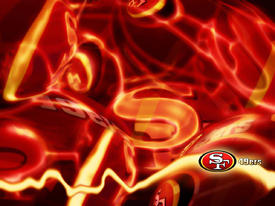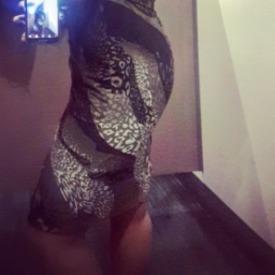Very low VO2 max?

SunKiwi
Posts: 25
I had my Resting Metabolic Rate and Exercise Metabolic Rate tested. My EMR results showed my VO2 max is only 18.2. My atheltic trainer said my "heart and lungs are not very strong" and that a good number is 40. Should I be concerned about my VO2 being so low? Can I increase it? I did a little googling about whether I can increase it. Some say you can, others say you can't because it's genetic. So I'm confused on this.
About me:
22 yr old female
5' 5" 178lbs
Live a sedentary life with non-consistent exercise but I'm changing that.
About me:
22 yr old female
5' 5" 178lbs
Live a sedentary life with non-consistent exercise but I'm changing that.
0
Replies
-
It is low but it can be improved. Where it is now will make cardio a pain for a while because your body is extremely inefficient right now. Take your time ... work to improve ... then get retested.0
-
Yes you can as you cardio endurance gets better. We get our VO2 max tested ever spring along with other tests through the IAFF PFT and they expect are numbers to get better.0
-
Exactly. I started at 44 in June last year and am now 61. How accurate that all is remains to be seen but at least the method is consistent (via Polar RCX). It just takes improving your fitness level. Be patient.0
-
I would have to know a lot more about how that number was determined before making any comment. Even for someone sedentary and overweight, that is an unusually low number for someone your age, so my first impression is that it is wrong.
In any case, yes VO2 max is something that can be improved with training.0 -
I would have to know a lot more about how that number was determined before making any comment. Even for someone sedentary and overweight, that is an unusually low number for someone your age, so my first impression is that it is wrong.
In any case, yes VO2 max is something that can be improved with training.
I'm starting to think that number isn't my VO2 *max*. I had the exercise metabolic rate test done to see at what heart rates do I burn to the most fat. She had me walking on a treadmill with a mask on. At no point was I running or reached a point where I could no longer continue. She said my VO2 max was 18.2 when my heart rate was a 146. The highest heart rate I reached during the test was 161. Maybe she meant that was my VO2 level at that specific point or maybe the test was wrong altogether. I'm not sure.
After the test, she printed out 12 week cardio plan for me to follow. It says that in order to burn the most fat, my heart rate should be between 117-134 (low zone) and 134-142 (moderate zone). I feel like this is really low as I'm used to doing Zumba at a heart rate of 170. But I guess I'm still trying to make sense of everything.0 -
While one burns more fat at lower intensities, the duration needed to equal calories burned on a higher intensity workout could be more than a couple of hours.I would have to know a lot more about how that number was determined before making any comment. Even for someone sedentary and overweight, that is an unusually low number for someone your age, so my first impression is that it is wrong.
In any case, yes VO2 max is something that can be improved with training.
I'm starting to think that number isn't my VO2 *max*. I had the exercise metabolic rate test done to see at what heart rates do I burn to the most fat. She had me walking on a treadmill with a mask on. At no point was I running or reached a point where I could no longer continue. She said my VO2 max was 18.2 when my heart rate was a 146. The highest heart rate I reached during the test was 161.
After the test, she printed out 12 week cardio plan for me to follow. It says that in order to burn the most fat, my heart rate should be between 117-134 (low zone) and 134-142 (moderate zone). I feel like this is really low as I'm used to doing Zumba at a heart rate of 170. I guess I'm still trying to make sense of everything.
VO2max can definitely be increased, but workouts need to be high intensity for short bursts to increase it. Using a "high altitude" mask during workouts work too.
A.C.E. Certified Personal/Group FitnessTrainer
IDEA Fitness member
Kickboxing Certified Instructor
Been in fitness for 30 years and have studied kinesiology and nutrition0 -
I would have to know a lot more about how that number was determined before making any comment. Even for someone sedentary and overweight, that is an unusually low number for someone your age, so my first impression is that it is wrong.
In any case, yes VO2 max is something that can be improved with training.
I'm starting to think that number isn't my VO2 *max*. I had the exercise metabolic rate test done to see at what heart rates do I burn to the most fat. She had me walking on a treadmill with a mask on. At no point was I running or reached a point where I could no longer continue. She said my VO2 max was 18.2 when my heart rate was a 146. The highest heart rate I reached during the test was 161. Maybe she meant that was my VO2 level at that specific point or maybe the test was wrong altogether. I'm not sure.
After the test, she printed out 12 week cardio plan for me to follow. It says that in order to burn the most fat, my heart rate should be between 117-134 (low zone) and 134-142 (moderate zone). I feel like this is really low as I'm used to doing Zumba at a heart rate of 170. But I guess I'm still trying to make sense of everything.
i'm starting to think that you're overthinking this. just work out. i promise you that damn near everything will improve if you are consistently challenging yourself with a combination of cardio and resistance training.
never worry about what your stats are. stay focused on what they're gonna be. just work out0 -
i'm starting to think that you're overthinking this. just work out. i promise you that damn near everything will improve if you are consistently challenging yourself with a combination of cardio and resistance training.
never worry about what your stats are. stay focused on what they're gonna be. just work out
This0 -
I would have to know a lot more about how that number was determined before making any comment. Even for someone sedentary and overweight, that is an unusually low number for someone your age, so my first impression is that it is wrong.
In any case, yes VO2 max is something that can be improved with training.
I'm starting to think that number isn't my VO2 *max*. I had the exercise metabolic rate test done to see at what heart rates do I burn to the most fat. She had me walking on a treadmill with a mask on. At no point was I running or reached a point where I could no longer continue. She said my VO2 max was 18.2 when my heart rate was a 146. The highest heart rate I reached during the test was 161. Maybe she meant that was my VO2 level at that specific point or maybe the test was wrong altogether. I'm not sure.
After the test, she printed out 12 week cardio plan for me to follow. It says that in order to burn the most fat, my heart rate should be between 117-134 (low zone) and 134-142 (moderate zone). I feel like this is really low as I'm used to doing Zumba at a heart rate of 170. But I guess I'm still trying to make sense of everything.
(Sigh) Sounds like a waste of technology. Too bad. It's disappointing to see something as potentially valuable as a metabolic cart dumbed down to support a debunked theory like the "fat burning zone".
Yes, I am pretty sure that the 18 number was the VO2 (oxygen uptake) for that workload. The "fat burning" heart rates can be useful if you are doing an endurance workout and want to keep yourself at the right intensity.0
This discussion has been closed.
Categories
- All Categories
- 1.4M Health, Wellness and Goals
- 394.8K Introduce Yourself
- 44K Getting Started
- 260.6K Health and Weight Loss
- 176.2K Food and Nutrition
- 47.5K Recipes
- 232.7K Fitness and Exercise
- 444 Sleep, Mindfulness and Overall Wellness
- 6.5K Goal: Maintaining Weight
- 8.6K Goal: Gaining Weight and Body Building
- 153.2K Motivation and Support
- 8.2K Challenges
- 1.3K Debate Club
- 96.4K Chit-Chat
- 2.5K Fun and Games
- 4.1K MyFitnessPal Information
- 16 News and Announcements
- 1.3K Feature Suggestions and Ideas
- 2.8K MyFitnessPal Tech Support Questions





